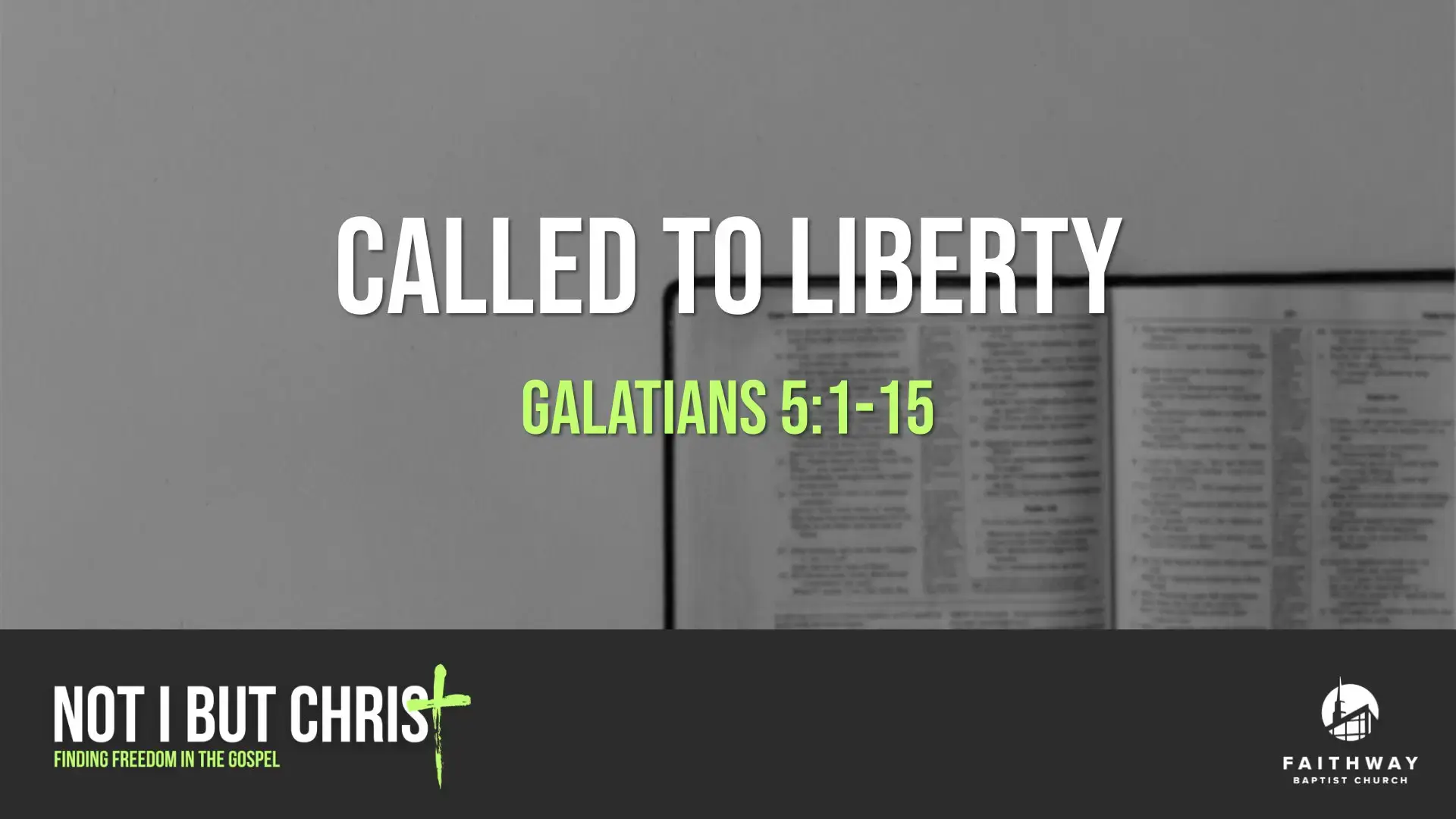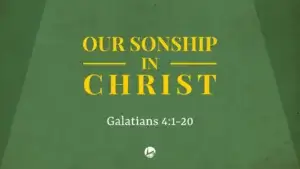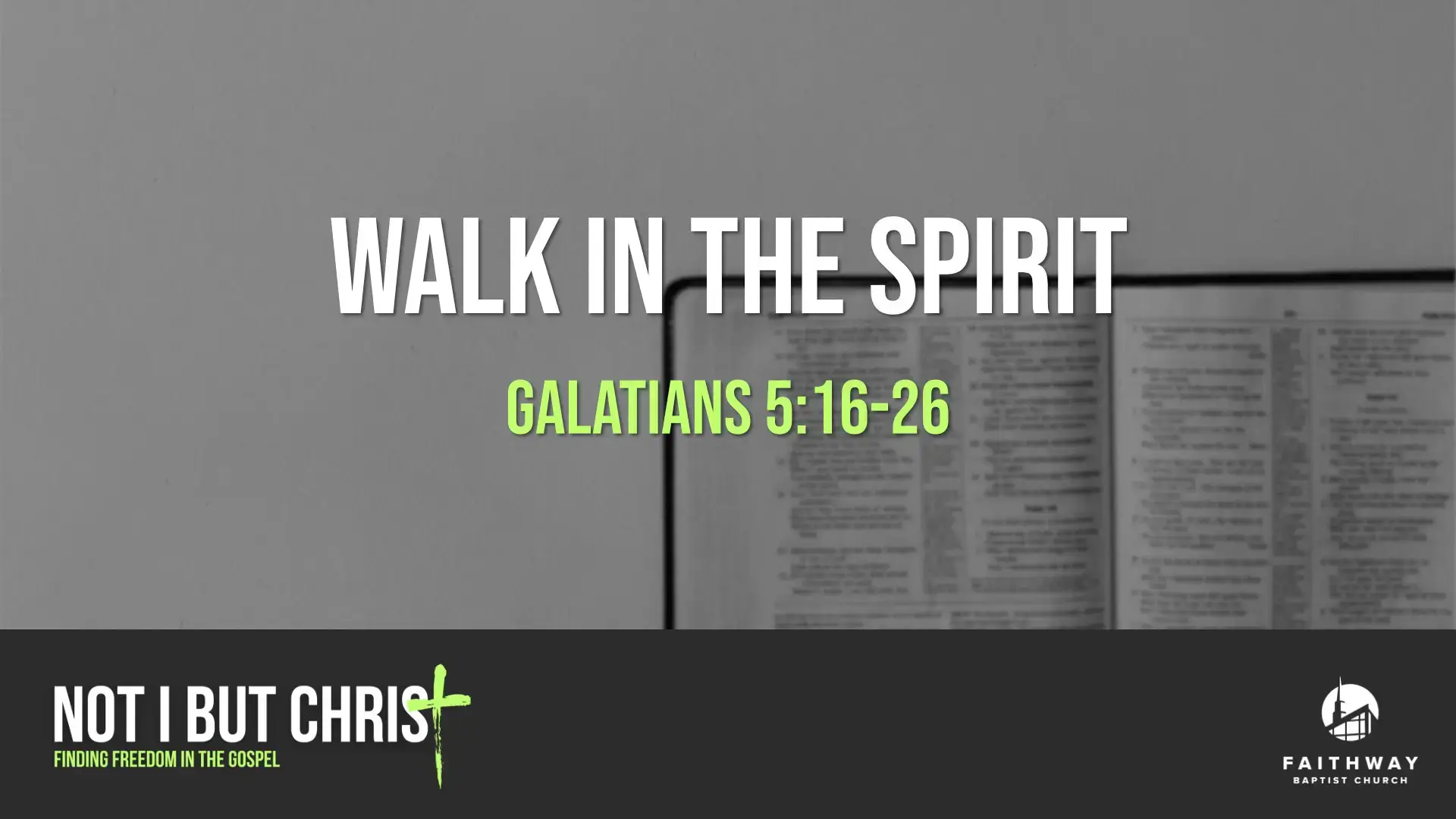Based on Galatians 5:1–15
Freedom is a powerful and fragile gift. It’s often only fully appreciated when it’s lost. In Galatians 5, the Apostle Paul reminds us that Christian liberty, our freedom in Christ, is not something we earned, nor should it be taken lightly. Instead, it’s a grace-filled call to live differently: not by fear or performance, but by faith, hope, and love. This passage shows us how to stand firm in that liberty, how to protect it, and how to live it out in meaningful service to one another.
1. Stand Firm in the Liberty Christ Provides (Verses 1–6)
Paul opens Galatians 5 with a clear command: “Stand fast therefore in the liberty wherewith Christ hath made us free.” He contrasts this freedom with the bondage of legalism, the pressure to earn God’s favour by rule-keeping and performance. Many believe that if they do enough good, God will accept them. But Paul warns that such a mindset is not only burdensome, it’s spiritually dangerous.
Christian liberty does not mean we are free to live however we want. Rather, it means we are free from the impossible pressure of earning salvation through good works. Jesus fulfilled the law on our behalf. To try to add anything like circumcision, rituals, or religious performance is to say that Christ’s work was not enough.
Paul is adamant: if you lean even slightly on your own righteousness, you fall from grace not in the sense of losing salvation, but in the sense of abandoning trust in Christ alone. True liberty is rooted in faith, not effort. It’s the freedom to live in gratitude, not anxiety, freedom to love, not to strive for approval.
2. Beware of the Leaven That Corrupts the Church (Verses 7–12)
Paul shifts his tone with a strong warning: the liberty Christ provides can be undermined by false teachers and misguided influences. “Ye did run well; who did hinder you?” he asks. Something or someone had crept in and disrupted the Galatians’ faith. This kind of corruption doesn’t always show up boldly, it sneaks in like leaven in dough, spreading quietly but thoroughly.
He emphasizes that this persuasion did not come from God. Sound doctrine will always align with God’s Word and be delivered in the spirit of the gospel, grace, truth, and love. When teaching comes with secrecy, division, or manipulation, it’s not from the Spirit of God.
Paul goes further to say that false teachers will face judgment. Their message diminishes the cross and elevates human effort. As Paul makes clear, he suffers persecution precisely because he preaches the offensive truth: the cross alone saves. Not our works. Not our traditions. Only Jesus.
Churches today must remain vigilant. False teaching often targets the young and spiritually vulnerable, spreading quietly and sowing confusion. Gospel clarity and pastoral watchfulness are vital for preserving liberty and unity.
3. Use Liberty to Serve One Another by Love (Verses 13–15)
True Christian liberty isn’t about indulgence it’s about service. Paul writes, “Use not liberty for an occasion to the flesh, but by love serve one another.” Freedom from the law isn’t a license to live selfishly; it’s an invitation to live sacrificially.
Rather than striving to earn God’s acceptance, believers are freed to love others fully. That’s the purpose of liberty: not to escape accountability, but to embrace responsibility. In Christ, we’re free to build, bless, and serve. We’re free to be fully present for others, bearing their burdens and sharing their joys.
The whole law, Paul reminds us, is fulfilled in this: “Thou shalt love thy neighbour as thyself.” But if that love is neglected, if believers bite and devour one another, they risk destroying the very community they were called to bless.
Conclusion
Liberty in Christ is not freedom from responsibility it’s freedom for a higher purpose. It’s the ability to stop striving for acceptance and start living out of the acceptance we already have in Jesus. We stand firm against every voice that tries to pull us back into performance. We stay alert to teaching that dilutes the gospel. And most importantly, we use our freedom to serve others in love.
This is the Christian life: not a burden, but a blessing. Not a list of requirements, but a call to relationship with God and with one another.











